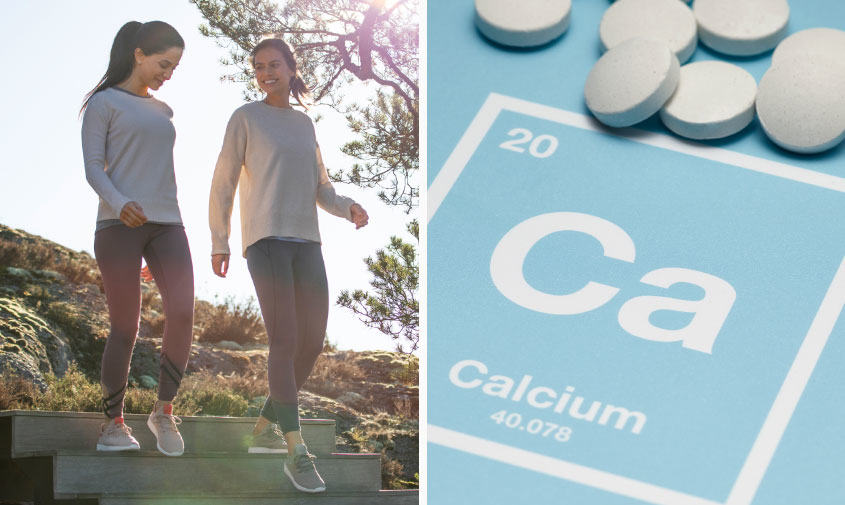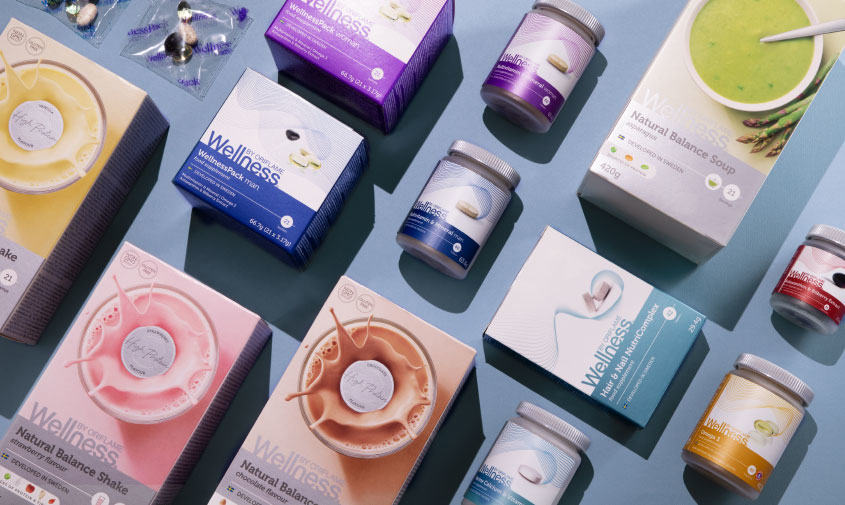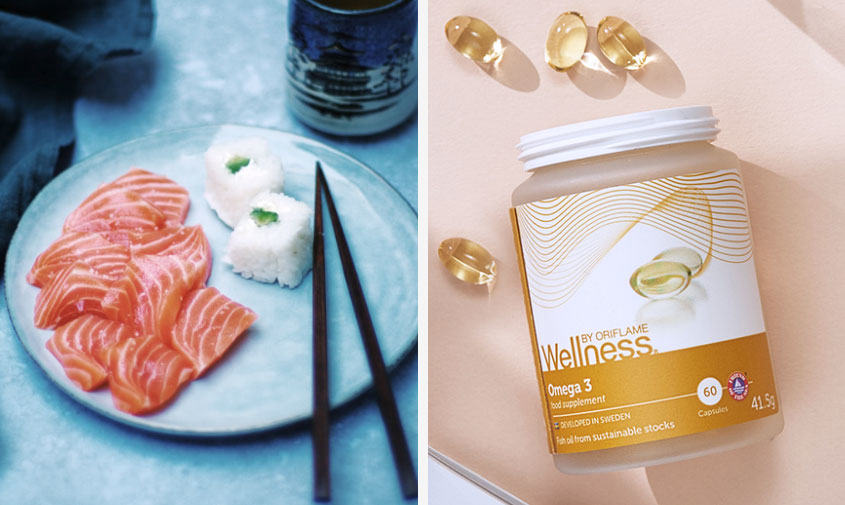THE VITAMIN GUIDE
Vitamin A You need Vitamin A for healthy skin, vision, your body’s immune system and growth. Our bodies convert beta carotene, the red-orange pigment found in vegetables and fruits, into as much Vitamin A as we need, so there’s no need to worry about overdoing it.
Eat: Leafy green vegetables, carrots, apricots, dairy, eggs and fish.
Vitamin B There are eight recognized B Vitamins that work to give you a healthy metabolism, nerve and muscle function and cell division. Vitamin B is particularly sensitive to processing, which is why people who eat a lot of processed foods are often slightly deficient in it.
Eat: Raw vegetables and fruit, nuts, wholegrain products (like brown rice or whole wheat pasta), eggs, meat and fish.
Vitamin C Most people are familiar with Vitamin C. This powerful antioxidant plays an essential part in creating collagen in connective tissue, which is why it’s imperative for healthy skin, teeth, bones and blood vessels. It also helps your body extract iron from food.
Eat: Fruit, berries, sprouts and root vegetables.
Vitamin D The most important source of Vitamin D is sunlight, and a 30-minute walk during the day is said to be as beneficial as drinking 10 glasses of milk! You need Vitamin D to absorb calcium and for a well-functioning immune system, as well as normal muscle function. A lack of Vitamin D can cause bone disease, so it’s essential that you get an adequate amount.
Eat: Oily fish and egg yolk.
Vitamin E The Vitamin E antioxidant protects the body’s cells from free radicals, which damage healthy cells. It works hand in hand with Vitamin C.
Eat: Nuts, beans, eggs, leafy greens and cereals.
Vitamin K Vitamin K helps your blood clot and bones rebuild and repair. The bacteria in your intestine naturally produces Vitamin K, but you should also get it from your diet.
Eat: Dark green leafy vegetables (broccoli, spinach and brussel sprouts)

THE MINERAL GUIDE
Calcium Calcium is essential for healthy bones, teeth and tissue. It regulates muscle and nerve function and is essential for blood clotting.
Eat: Leafy green vegetables, almonds, beans, fruit and dairy.
Magnesium Magnesium is involved in more than 300 essential metabolic reactions in your body, including energy production, normal heart function and muscle contraction. It’s common for people to not have enough magnesium in their diets.
Eat: Leafy green vegetables, nuts (cashew and almonds), seeds and whole grains.
Selenium Selenium helps make antioxidant enzymes that prevent the damaging effects of free radicals. If you don’t get enough selenium you may suffer from a weakened immune system or poor heart function.
Eat: Cereals, nuts, mushrooms and fish.
Zinc A healthy-functioning immune system needs Zinc to work properly. Zinc helps your body heal wounds, break down carbohydrates, build strong skin and contributes to well-functioning sight, smell and taste.
Eat: Seeds (sesame, sunflower and pumpkin), nuts, meat, lentils and mushrooms.
Iodine Iodine is an essential component of the thyroid hormones, which regulate metabolism, growth and development, and the reproductive function. A lack of iodine can lead to mental disorders.
Eat: Salt, seaweed, seafood, beans, potatoes, dairy and eggs.
Copper Copper is needed for a healthy central nervous system, energy and melanin production. You also need it to form collagen and elastin in the skin and for healthy connective tissue in the heart, blood and your bones.
Eat: Beans, nuts, seeds, grains and mushrooms.
Iron Iron is needed for our red blood cells to detoxify and carry oxygen around our bodies. Without iron you risk developing anaemia.
Eat: Lentils, beans strawberries and red meat
AND FATTY ACIDS…
Omega-3 Like vitamins, the body cannot create Omega 3, so you need to get it from your diet or via a supplement. Omega-3 reduces inflammation, which can help lower the risk of heart disease, cancer and arthritis. It also supports the functions of the brain and eye.
Eat: Fatty fishes (mackerel, trout and salmon), flax seeds, walnuts, Omega-3 supplements.





